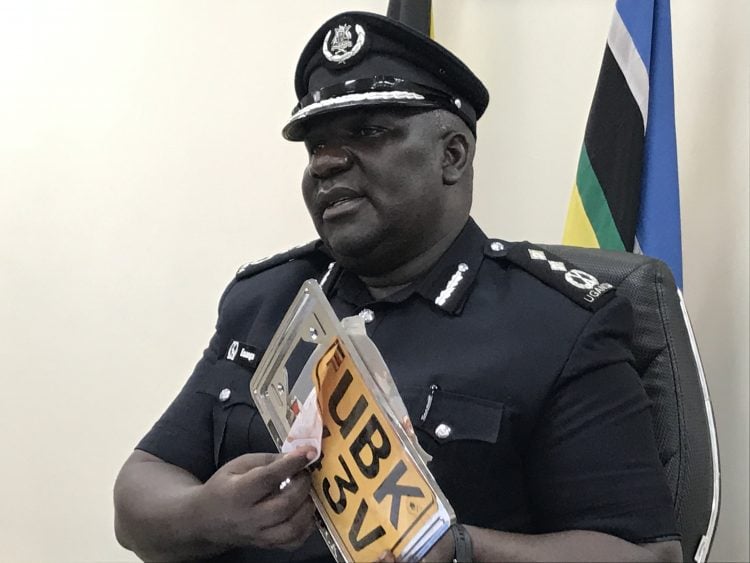Police must arrest owners of fake number plates

On February 4, 2016, the Uganda Revenue Authority (URA) assigned a UAY883K registration number to a Mercedes Benz C200 saloon.
Just over one year later (March 23, 2017), the Uganda Police Force booked an ‘Ali Bukenya’ who was driving a Toyota Hiace van on Kampala Road for obstructing a road.
A traffic police officer, Amaitum, fined Bukenya Shs100,000 but let the latter drive off, perhaps because Bukenya might not have had the amount on him.
The Force is patient; it waited from 2017 through 2022 for Bukenya to keep his side of the bargain. He did not. So, the police added a Shs50,000 surcharge, which was to be paid in 28 days.
Fast forward to September 15, 2022, the Police flagged down a Mercedes Benz registration number UAY883K on Old Port Bell Road and issued an express penalty scheme ticket dated March 23, 2017, for a Toyota Hiace being driven by Ali Bukenya!
It is becoming clear this is not an isolated case.
An associate had earlier been issued with a similar receipt – same year and make of vehicle – Toyota Hiace – yet this colleague drives a different make.
Even though to err is human, for the police to flag down a saloon car when they should be looking for a van raises questions.
Do they make sense of the raw information they gather in the field? Do they even enter it correctly? If, while entering the particulars into their database, they make a mistake, do they ponder to think of who should be held accountable? In case of traffic offences, do they cross-check with URA about the registration of the motor vehicles, the make and ownership?
Do they interest themselves in forged number plates? These are just a few questions that flash through one’s mind. In August this year, the same police warned the public about suspected criminals who use fake sticker number plates to commit crimes.
That traffic police are currently not even bothering to ask many a motorist for their drivers’ licences and or national identity cards – to be sure they have flagged down the right persons – is telling.
While it is common for different persons to drive public service vehicles (commuter minibuses) – person ‘A’ will drive it in the morning and hand it to ‘B’ in the evening – it is uncommon among drivers of other private cars.
With the latest crackdown, when many motorists protest, the officers simply direct them to go to different police stations – I was told to go to Nateete whereas my colleague was referred to the Kampala Central Police Station.
There are many motorists who could be culpable – and will pay – just as there are many innocent motorists who will pay to spare themselves the inconvenience of spending many hours in police station lobbies’ waiting to clear their names.
And that will be a breeding ground for kickbacks; it might not per se increase the Uganda Police Force’s nontax revenue.
There could be a few motorists who would rather subject themselves to probably lengthy court processes to prove their innocence and, if exonerated, thereafter sue for damages.
To sum this up, the Uganda Police should be meticulous.
It could start by getting the basic facts right. It will not harm the Force if it liaises with the Uganda Revenue Authority to verify information about motor vehicles. Many motorists, I would want to think, still want to know what became of the investigation into the UBG129Y number plate that was being ascribed to two different vehicles, one a Subaru Forester and the other a Harrier.
Perhaps investigative journalists, too, could pick interest in the subject.
Nelson Wesonga
Works at Umeme Ltd




